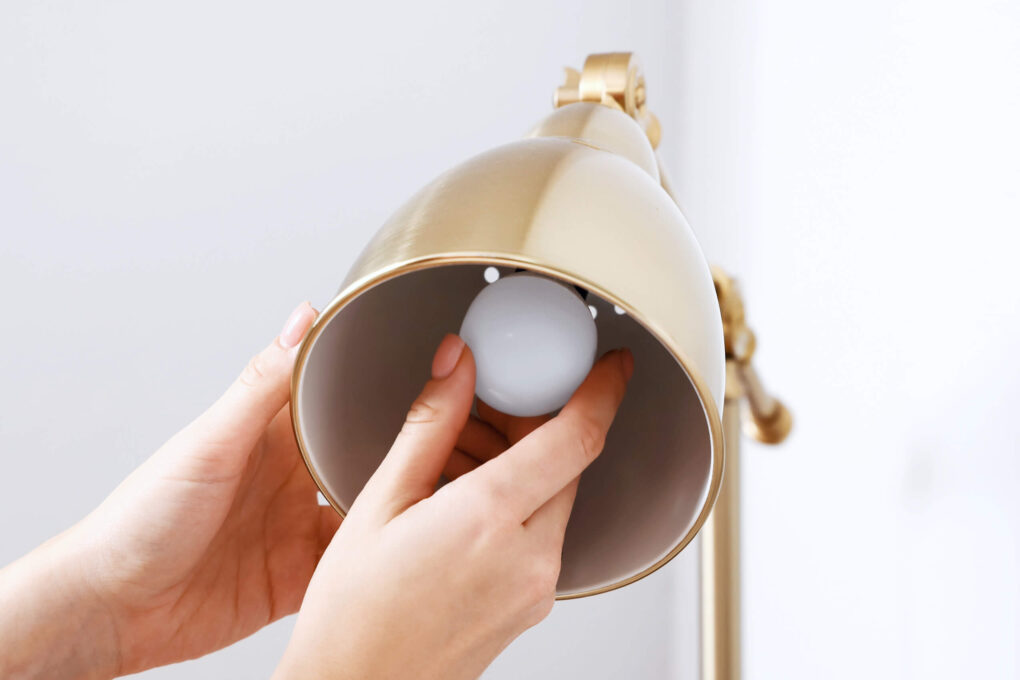If you live in a co-op, condo, or HOA, there are many ways to go green throughout your home and community. These Earth Day inspired tips can help you conserve and reduce your footprint with ease.

Follow Us on Social Media:
Why Should Homeowners and Shareholders Go Green?
Having a greener household can conserve resources, reduce clutter, protect the environment, and in some cases lower costs on utilities and repairs. Luckily, there are many options that homeowners, shareholders, and residents can choose to become more eco-friendly.
18 Earth Day Tips for Homeowners and Shareholders
- Switch to LED lighting and bulbs in your home. While there is an upfront cost in making this change, it is worth the energy conservation (and reduced electric bills) in the long run. Consider doing the same for seasonal items such as holiday decorations wherever possible.
- Follow all refuse procedures in your community to ensure that recyclables and trash can be properly disposed of. Additionally, review your town municipalities trash and recycling webpage for scheduling, tips, and requirements for proper disposal.
- Help protect your plumbing and local water supply. Avoid dumping or flushing items down the toilet or drain that can be hazardous to the environment and plumbing. For example, improper disposal of household items such as expired medications, cooking oil, chemicals, wipes etc. can cause clogs and damage pipes in addition to polluting the water supply.
- Go paperless with e-billing for your maintenance or common charge bills from management and other service providers. This is an easy way to reduce clutter and paper waste in your home. Additionally, e-billing is a great option for snowbirds or residents with more than one dwelling.
- Consider Donating Your Christmas Tree After Holiday Season. There are local farms and programs on Long Island for recycling Christmas trees. For example, real Christmas trees can be recycled into mulch, storm surge protection, and even food for local goats.
- Opt-in to email, robocall, and/or texting communication with your property management company to reduce paper usage from mailings.
- Do not litter in outdoor common areas. Cigarettes, food scraps, and other trash that is left behind can create an unsightly appearance and pollute the environment.
- Avoid feeding animals in your community. Food scraps left for animals can create pest issues such as an increase in animal droppings in and around your community, or an influx of “visitors.” Additionally, human food can be harmful to animals.
- Re-evaluate your appliances. If your appliances are decades old, they may be reliable, but they may not be energy efficient. Consider upgrading to home utilities with an ENERGY STAR certificate.
- Pick up a new sport or physical activity. Utilize the amenities available in your community that are in walking distance such as tennis courts, basketball courts, pickle ball courts, swimming pools, etc. Creating a league or pick-up game is also a great way to get involved in your co-op, condo, or HOA.
- Conserve water. Shorten your showers and turn off the water faucet when brushing your teeth. Additional examples of water reduction include using washing machines to their maximum efficiently and opting for washing dishes in the dishwasher instead of by hand when or if possible. Check your co-op, condo, or HOA’s alteration guidelines and governing documents if your home or unit does not currently have these appliances, as you may be required to receive board approval prior to adding any appliances.
- Report appliance leaks to management or get them repaired. Water that is constantly leaking from a toilet can create a spike in your water utility bill. To address plumbing repairs, you will either have to contact management, or hire a plumber to repair any leaks in toilets, sinks, showers, etc. Check your governing documents to review your responsibilities as the owner or shareholders of your unit or home.
- Select eco-friendly cleaning products that are gentler on the environment, pets, and humans. Plus, clean with washable clothes or rags instead of single-use wipes and paper towels to reduce weekly waste that ends up in the trash. Look for the Safer Choice label on household cleaning products.
- Reduce food waste by optimizing how you physically store food in the fridge and freezer. Also, pickling and canning fruits and vegetables make great hobbies that help to conserve produce.
- Participate in a New York States Solar Power Project. New York State provides solar power programs (some through PSEG) to those who may not be able to physically have solar panels on their roof or property. Check your eligibility and available service providers.
- Re-use or repurpose plastic containers. If you often find yourself sending guests home with leftovers, have spare containers at the ready. This is an easy recycling effort that doesn’t require you to part ways with expensive or fancy Tupperware. Additionally, there are many ways to get creative with single use plastic containers. Sites like Pinterest offer a ton of inspirational ideas for upcycling everyday items.
- Ditch single use coffee pods and coffee cups in your home. We know this one may not be so easy, but you don’t have to toss the coffee machine out. Simply opt for re-usable/re-fillable coffee pods instead. Additionally, try avoiding paper cups unless necessary.
- Don’t forget your re-usable shopping bags when you complete your weekend errands! This happens to the best of us.
Everyday Can Be Earth Day
Fortunately, there are many ways that any homeowner, shareholder, or resident can make small changes that have a positive impact on the environment, clutter, home care, and expenses. These Earth Day tips can be applicable to anyone’s current lifestyle.

